
NEW DELHI: Around the time the Lok Sabha election was in full swing, fact-checkers were hard at work. A high-voltage campaign means a flood of content moving around with claims ranging from plausible to wild. But moderating wasn’t easy. If five fake WhatsApp images were flagged, four kept circulating anyway, a study has found.
A researcher from MIT and three others from Brazil’s Federal University of Minas Gerais studied interactions in 4,250 public WhatsApp groups between February and June last year, coinciding with the parliamentary election campaign. Publishing their findings in‘Harvard Misinformation Review’, they wrote, “Even though fact-checking efforts label content as misinformation, it is still being freely shared on the platform, indicating that public fact-checking alone does not block the spreading of misinformation on WhatsApp.” This was true 82.2% of the time. In fact, the fake images were shared 2,944 times and the maximum shares for an image even after being flagged stood at 1,089. And 15% of the images were health-related.
“The groups are not of people who know each other, like family groups. These are political groups with strangers,” co-author of the paper, Kiran Garimella from MIT, told TOI.
A researcher from MIT and three others from Brazil’s Federal University of Minas Gerais studied interactions in 4,250 public WhatsApp groups between February and June last year, coinciding with the parliamentary election campaign. Publishing their findings in‘Harvard Misinformation Review’, they wrote, “Even though fact-checking efforts label content as misinformation, it is still being freely shared on the platform, indicating that public fact-checking alone does not block the spreading of misinformation on WhatsApp.” This was true 82.2% of the time. In fact, the fake images were shared 2,944 times and the maximum shares for an image even after being flagged stood at 1,089. And 15% of the images were health-related.
“The groups are not of people who know each other, like family groups. These are political groups with strangers,” co-author of the paper, Kiran Garimella from MIT, told TOI.
Download
The Times of India News App for Latest India News

Coronavirus outbreak
Trending Topics
LATEST VIDEOS
India
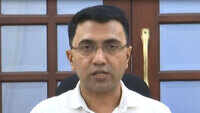 5,500 candidates will appear for JEE, NEET in Goa: CM Pramod Sawant
5,500 candidates will appear for JEE, NEET in Goa: CM Pramod Sawant 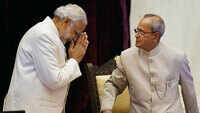 PM Modi mourns former President’s demise
PM Modi mourns former President’s demise 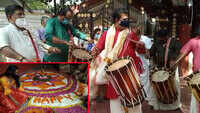 Indore: MP Shankar Lalwani joins South Indian community in celebrating Onam
Indore: MP Shankar Lalwani joins South Indian community in celebrating Onam 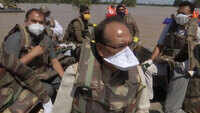 Madhya Pradesh CM Chouhan surveys flood-hit Hoshangabad in boat
Madhya Pradesh CM Chouhan surveys flood-hit Hoshangabad in boat 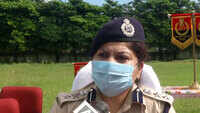 Family members of militants are soft targets for ISI: J&K Police
Family members of militants are soft targets for ISI: J&K Police 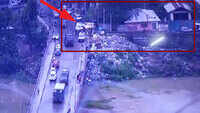 On cam: Terrorists hurl grenade on Army Convoy in Baramulla
On cam: Terrorists hurl grenade on Army Convoy in Baramulla
More from TOI
Navbharat Times
Featured Today in Travel
Quick Links
Coronavirus in MumbaiCoronavirus in KolkataCoronavirus in HyderabadCoronavirus in DelhiCoronavirus in BangaloreCoronavirus symptomsCoronavirus in IndiaWhat is CoronavirusCoronavirus NewsSolar EclipseNPRWhat is NRCCAB BillCAB and NRCRTI BillPodcast newsLok SabhaShiv SenaYSRCPCongressBJP newsUIDAIIndian ArmyISRO newsSupreme Court
Get the app



